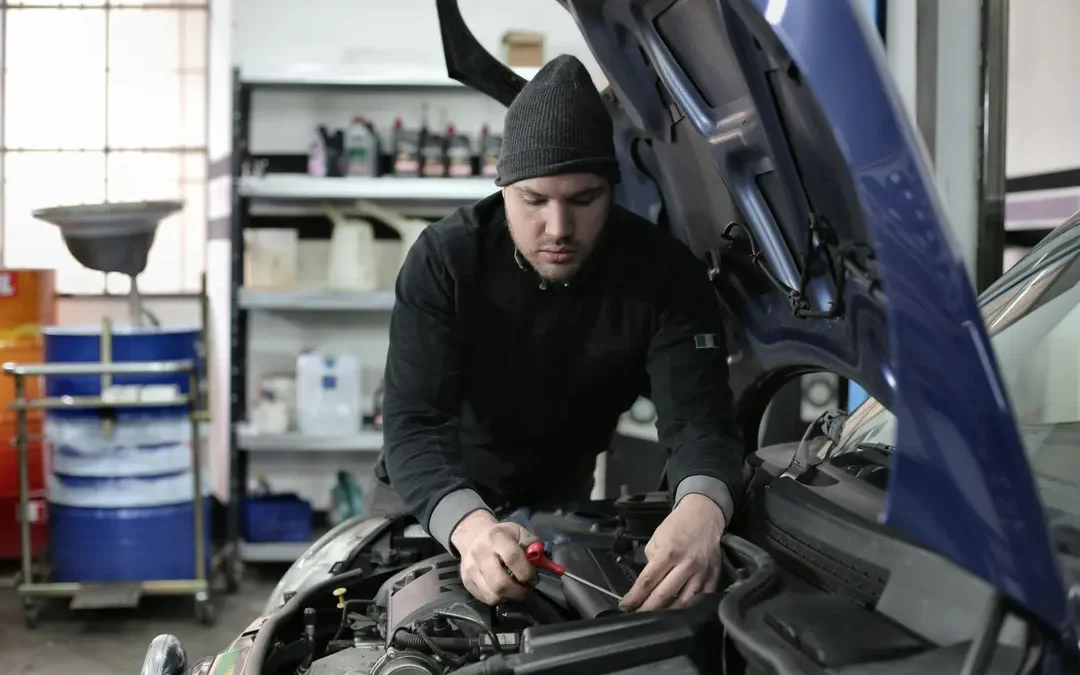If your car keeps overheating, it can be a real headache. Not only can it leave you stuck on the side of the road, but it can also cause long-term damage to your engine. Overheating is a sign that something’s wrong under the hood, and if you don’t address it quickly, it could lead to expensive repairs.
Let’s dive in and find out what might be causing the problem.
Common Causes of Overheating
Overheating can occur for several reasons, some of which are easier to fix than others. Here are the main causes of overheating:
Low Coolant Levels
Low coolant is one of the most common causes of overheating. Coolant regulates your engine’s temperature, so if the levels drop, the engine can’t stay cool. Leaks, evaporation, or simply not adding enough coolant during your last service can cause this problem.
Broken Thermostat
The thermostat controls the flow of coolant through your engine. If it gets stuck in the closed position, coolant can’t circulate, which leads to overheating. Replacing a faulty thermostat is relatively simple, but ignoring the issue can cause more severe engine problems.
Faulty Radiator Fan
The radiator fan cools your engine by pushing air through the radiator. If the fan isn’t working properly, your engine won’t cool down, especially when you’re driving at low speeds. A malfunctioning or damaged radiator fan can easily cause the engine to overheat.
Clogged Radiator
Over time, debris and rust build up in the radiator, restricting coolant flow. When the coolant can’t move freely, your engine overheats. A clogged radiator will struggle to do its job, resulting in poor cooling performance.
Worn Water Pump
The water pump circulates coolant throughout the engine. If it fails, the coolant can’t flow, and your engine will overheat. A worn-out water pump needs to be replaced immediately to avoid causing damage to your engine.
What to Do If Your Car Overheats
If you find yourself in a situation where your car is overheating, it’s important to stay calm and take the right steps.
1. Pull Over and Turn Off the Engine
If your temperature gauge is in the red zone, safely pull over. Continuing to drive can make the problem worse. Turn off the engine to prevent further damage.
2. Let the Engine Cool Down
After turning off the engine, give it time to cool down. Opening the hood can help speed up the process. Don’t open the radiator cap until the engine has cooled completely to avoid burns.
3. Check the Coolant Level
Once the engine has cooled, check the coolant level. If it’s low, add coolant to the reservoir. Make sure you use the correct type for your vehicle.
4. Seek Professional Help
If your car keeps overheating despite adding coolant, there may be an underlying issue. Call a mechanic to get the problem diagnosed and fixed.
When to Visit a Mechanic
If your car continues to overheat, it’s best to get professional help. Mechanics can inspect the radiator, thermostat, water pump, and other cooling system components. Catching a problem early can prevent costly repairs down the road.
Let Jerry & Walt’s Help
At Jerry & Walt’s Complete Auto Care, we specialize in cooling system repairs and maintenance. If your car is overheating, bring it in for a thorough inspection. We can diagnose the issue and provide the necessary repairs to get your car back on the road without the worry of overheating. Schedule your appointment today and save on future repairs. For more useful car care tips, check out our YouTube channel!
Explore all our auto repair services.

